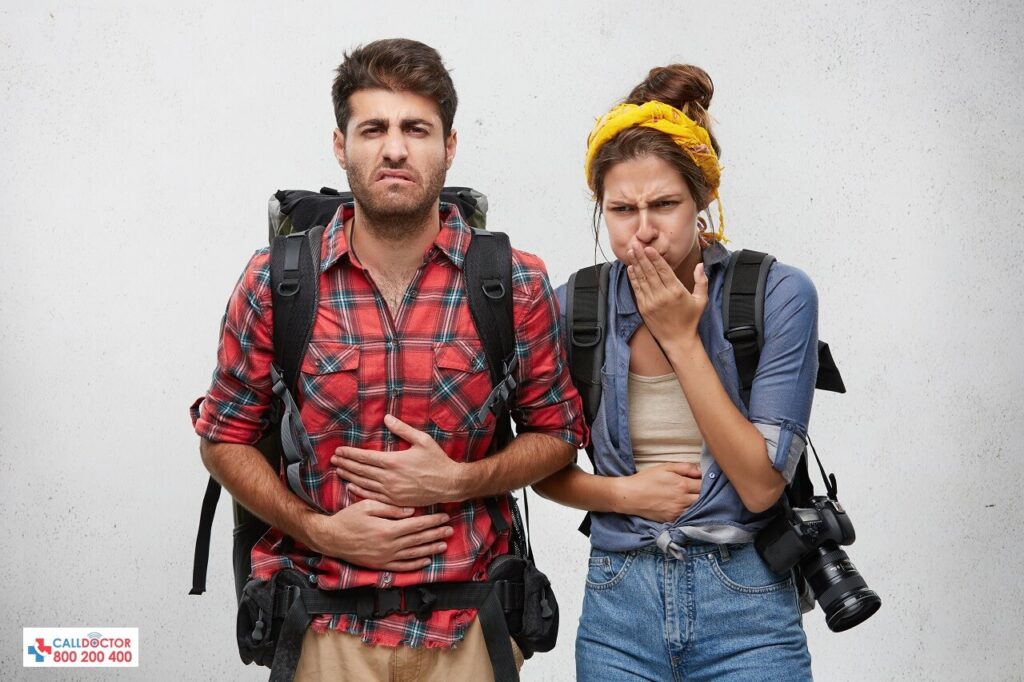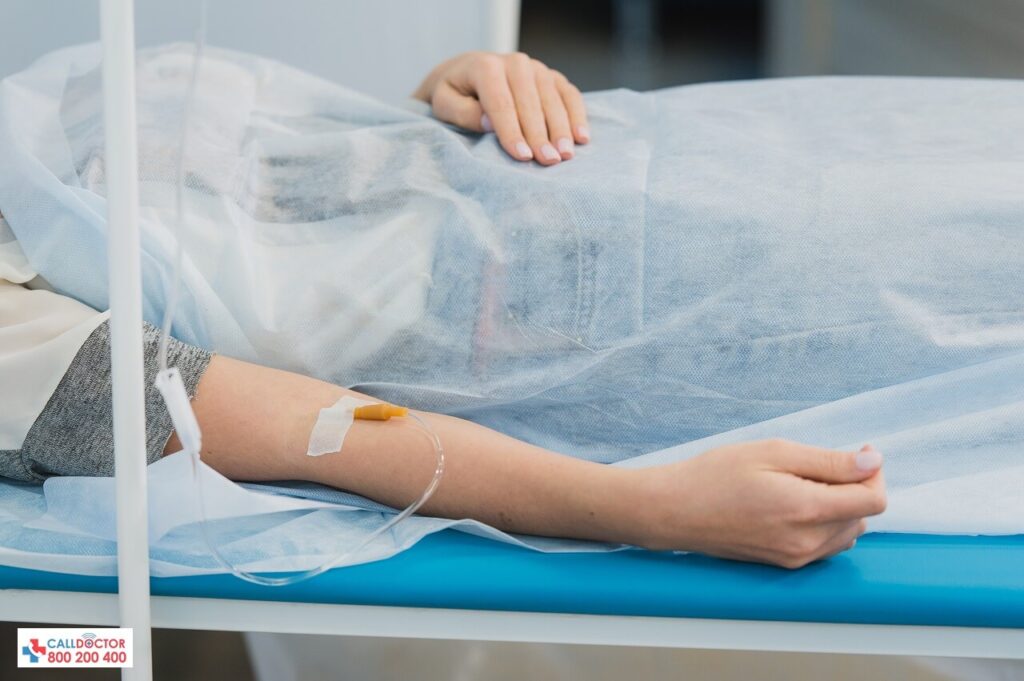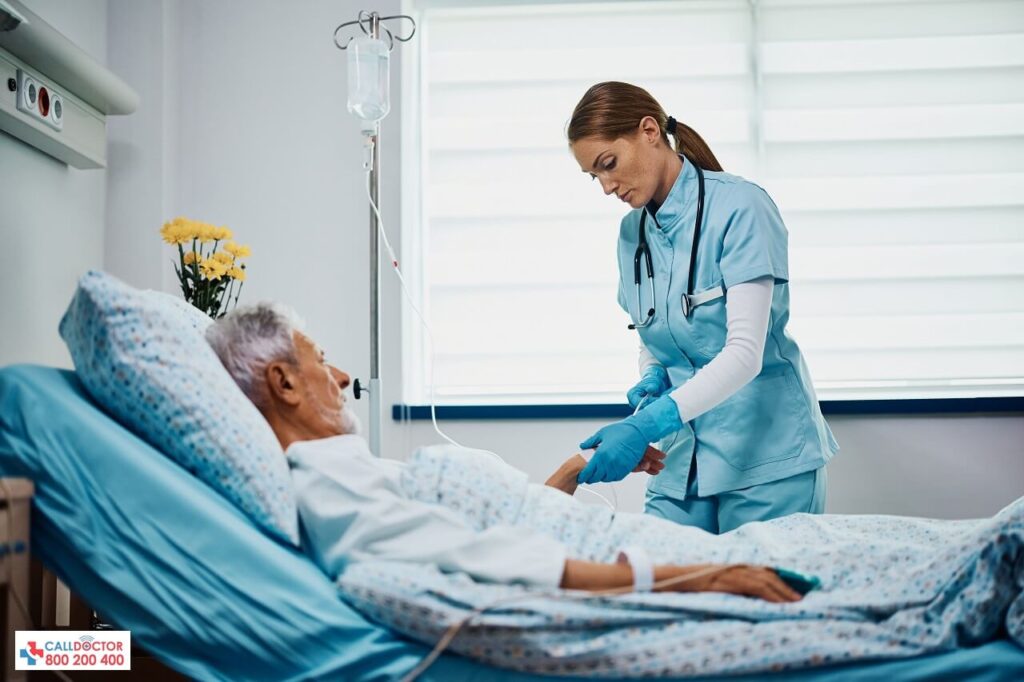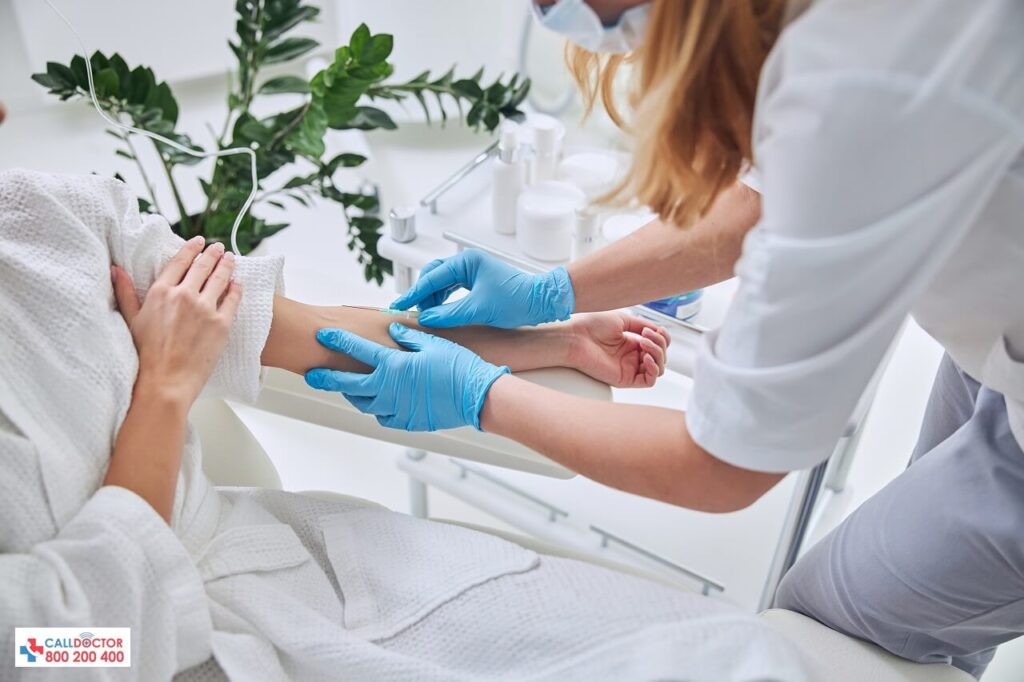When you travel, you usually eat various exotic foods. They can be prepared either hygienically or improperly. Occasionally, food that needs to be cooked appropriately can lead to a healthy life. In many situations where hygienic food is not prioritized, food poisoning results. Iv therapy for food poisoning is the best treatment to avoid dehydration.
You risk developing food poisoning when you consume food or water contaminated with bacteria, parasites, viruses, or the poisons these organisms produce. Most of the time, common bacteria like staphylococcus or E Coli are to blame.
Many people recover without treatment in a few days, and it’s typically not dangerous. Some people bounce back independently, but some can get quite sick. You are more at risk if you are pregnant, older than 65, or have a compromised immune system. Additionally, young toddlers are particularly vulnerable, especially to dehydration.
Causes of Food Poisoning
Common causes of food poisoning include eating or drinking:
- Food prepared with unclean cooking utensils, cutting boards, or other tools
- Dairy products or food containing mayonnaise that has been out of the refrigerator for an excessive amount of time
- Refrigerated or frozen foods that are not stored at the proper temperature
- Raw fish or oysters
- Vegetables and fruits that are not washed well
- Undercooked meats or eggs
Symptoms of Food Poisoning
Food poisoning typically results in
- Nausea
- Vomiting
- Diarrhea
- Stomach cramps
- Fever
- Abdominal pain
- Appetite loss
Within an hour, these symptoms may begin. Alternatively, they may strike ten days later. Symptoms of mild to moderate food poisoning typically last one to two days and do not necessitate treatment from a medical professional. However, if you continue to experience symptoms after three days, see a doctor immediately.

Food Poisoning Doctor: When to Seek Medical Attention
Knowing when to seek medical attention for food poisoning can make all the difference in your recovery. If your symptoms persist for more than three days, or you experience severe dehydration, bloody stools, or a high fever, it’s essential to consult a food poisoning doctor immediately.
Pregnant women, young children, elderly individuals, or those with weakened immune systems should act swiftly as they are more vulnerable to complications.
At Call Doctor, our healthcare professionals provide personalized care, including IV therapy for food poisoning, to ensure you receive proper hydration and treatment. Don’t wait for your condition to worsen get the relief you need, when you need it most.
Precautions During Food Poisoning
- You should get plenty of rest.
- Drink plenty of water to avoid becoming dehydrated.
- Caffeine-free beverages in small, frequent quantities. You might vomit if you drink too much and too quickly.
- For another day or two, you’ll still want to avoid alcohol and caffeine.
- Avoid dairy products like milk, butter, and ice cream.
Raw products like meat, poultry, and fish, as well as smoked and cured fish, dairy products, and uncooked or partially cooked dough and pastry, all of which are particularly susceptible to bacteria, must be stored at controlled temperatures.
You’ve probably been in that situation. You got food poisoning because you ate stale sushi, undercooked steak, or rotten eggs. Not only can food poisoning make you feel bloated, crampy, and nauseous, but it can also make it hard to go about your day.
Resting is also essential for people who have food poisoning. Moreover, iv therapy for food poisoning is the best option to boost the immune system.
Best IV Fluid for Food Poisoning – How IV Therapy Helps Recovery
IV fluid for food poisoning is a game-changer in accelerating recovery, especially in severe cases where dehydration takes a toll on your body. Vomiting and diarrhea deplete essential fluids and electrolytes, leaving you weak and unable to function. IV therapy replenishes lost fluids directly into your bloodstream, bypassing the digestive system for instant relief.
Packed with hydration, vitamins, and medications required for your symptoms, Intravenous therapy rehydrates your body, boosts immunity, and flushes out toxins effectively. Call Doctor’s Food Poisoning IV therapy package is designed for quick recovery, offering relief in as little as 45 minutes. Don’t let food poisoning disrupt your life—opt for IV therapy for a faster and smoother recovery.

In severe cases of food poisoning, you may need intravenous (IV therapy for food poisoning to stay hydrated in a hospital.
If you know when to get an IV drip, you can get fast relief from food poisoning and more fluids, which are essential for helping your body get rid of toxins and rehydrate after vomiting. For relief from even the most severe symptoms of food poisoning, Call Doctor highly recommend our Food Poisoning IV Package, which takes as little as 45 minutes.
Dispenses Medications:
Because it contains a blend of vitamins and medicines tailored to your condition, an IV drip is used to administer medication effectively. Our IV therapists will add specific medications to alleviate nausea, vomiting, diarrhea, and heartburn for quick relief when you have food poisoning symptoms.
Hangover IV Drip Dubai: Dual Benefits for Dehydration and Food Poisoning
Did you know the same Hangover IV drip Dubai that saves you from post-party dehydration can also be your best ally during food poisoning? This dual-purpose solution rehydrates your body, alleviates nausea, and combats fatigue caused by vomiting and diarrhea.
Hangover IV therapy contains a custom blend of fluids, electrolytes, vitamins, and medications that support recovery from food poisoning while restoring energy levels. Whether you’re dealing with a hangover or a stomach bug, this drip is designed to get you back on your feet quickly. With Call Doctor’s home IV services, you can recover comfortably in the privacy of your home.
What Should You Eat and Drink if You Have Food Poisoning?
The best action is to avoid solid foods until diarrhea and vomiting subside gradually. Instead, ease back into your regular diet by eating or drinking bland, easy-to-digest, low-fat foods like:
Saltine crackers, toast, gelatin bananas, rice, oatmeal, bland potatoes, boiled vegetables, chicken broth, sodas without caffeine like root beer or ginger ale, diluted fruit juices, and sports drinks are things to avoid. Even if you think you are feeling better, try to avoid the following harder-to-digest foods.
Dairy products, particularly cheeses and milk, fatty, fried, and highly seasoned foods, foods high in sugar, and spicy foods.

No More Food Poisoning
In severe cases, blood, stool, and food-related tests may be essential to identify the source of the food poisoning. A doctor may also use a urine test to determine whether food poisoning has dehydrated you.
Contact us for better IV therapy for food poisoning. Book your appointment today.
FAQs
✔️ When should I see a doctor for food poisoning?
You should see a food poisoning doctor if your symptoms last more than three days or worsen over time. Signs like severe dehydration, blood in stools, persistent vomiting, a high fever, or dizziness require immediate medical attention. Vulnerable groups like pregnant women, children, the elderly, or individuals with weakened immune systems should consult a doctor sooner, as they are more prone to complications.
✔️ How does IV therapy help with food poisoning recovery?
IV therapy for food poisoning is one of the fastest and most effective ways to recover. It replenishes lost fluids, restores essential electrolytes, and delivers medications directly into your bloodstream. This bypasses the digestive system, which may not absorb nutrients effectively during illness. IV therapy also helps relieve symptoms like nausea, vomiting, and fatigue, allowing your body to recover faster.
✔️ What is the best IV fluid for food poisoning?
The best IV fluid for food poisoning typically contains a combination of saline, electrolytes, vitamins, and medications. Saline helps rehydrate your body, electrolytes restore balance, and vitamins boost your immunity. Depending on your symptoms, medications for nausea or diarrhea can also be added. At Call Doctor, our Food Poisoning IV Package is for you, ensuring quick relief and recovery.
✔️ Can I use a hangover IV drip for food poisoning?
Yes, a Hangover Intravenous drip in Dubai can also benefit food poisoning recovery. Both conditions cause dehydration and require rapid rehydration. Hangover drips typically include fluids, electrolytes, and vitamins, which are equally effective in addressing symptoms like fatigue, nausea, and dehydration caused by food poisoning. Call Doctor offers versatile IV therapy options that cater to both hangovers and food poisoning.
✔️ Is it safe to get IV therapy at home for food poisoning?
Yes, it is safe and highly convenient, especially if you’re too unwell to travel. Call Doctor provides professional home healthcare services, ensuring that all treatments, including IV therapy for food poisoning, are administered by licensed healthcare professionals. The process is hygienic, personalized, and designed to provide immediate relief in the comfort of your home.




